Are you an unsigned artist looking to make your mark in the music industry? As an independent artist, it can be challenging to get your music noticed and build a dedicated fan base. However, with the right music marketing strategies, you can increase your visibility and create opportunities for success. In this article, we will explore the top music marketing strategies for unsigned artists, providing you with actionable tips to help you navigate the competitive music landscape.
1. Define Your Brand and Target Audience
Before diving into any marketing efforts, it’s crucial to have a clear understanding of your brand identity and target audience. Take some time to define your unique style, image, and message. What sets you apart from other artists? Once you have a clear brand image, identify your target audience – the group of people who are most likely to resonate with your music. This will help you tailor your marketing efforts effectively.
2. Create Engaging Social Media Profiles
In today’s digital age, social media plays a significant role in music marketing. Utilize platforms such as Facebook, Instagram, Twitter, and YouTube to connect with your audience. Create engaging and visually appealing profiles that reflect your brand. Share regular updates, behind-the-scenes content, and snippets of your music to keep your fans engaged and excited about your journey.
3. Develop a Consistent Content Strategy
Consistency is key when it comes to building a loyal fan base. Develop a content strategy that aligns with your brand and resonates with your target audience. This could include releasing regular singles, music videos, vlogs, or even blog posts discussing your creative process. By consistently delivering valuable content, you’ll keep your fans invested in your journey and generate buzz around your music.
4. Collaborate with Influencers and Bloggers
Influencer marketing is a powerful tool for reaching new audiences. Identify influencers or bloggers in your niche who have a significant following and align with your brand. Reach out to them and propose a collaboration, such as featuring your music in their content or conducting an interview. This can expose your music to a wider audience and help you gain credibility within the industry.
5. Leverage Email Marketing
Email marketing remains an effective strategy for engaging with your fans directly. Build an email list by offering incentives such as exclusive content, discounts, or early access to new releases. Regularly send out newsletters or updates to keep your fans informed about your latest projects, upcoming shows, and other exciting news. Personalize your emails to make your fans feel valued and appreciated.
6. Engage with Your Fans
Building a strong relationship with your fans is essential for long-term success. Engage with your fans on social media by responding to comments, messages, and mentions. Show genuine interest in their support and create a sense of community around your music. Host live Q&A sessions, giveaways, or even virtual concerts to foster a deeper connection with your audience.
7. Utilize Online Music Platforms and Streaming Services
In today’s digital music landscape, online platforms and streaming services are crucial for reaching a wider audience. Upload your music to platforms like Spotify, Apple Music, SoundCloud, and Bandcamp. Optimize your profiles with high-quality cover art, engaging artist bios, and relevant tags and keywords. Explore playlist placement opportunities and collaborate with curators to boost your visibility.
8. Seek Press Coverage and Media Opportunities
Gaining press coverage and media opportunities can significantly elevate your profile as an artist. Research music blogs, online magazines, and local newspapers that cater to your genre. Reach out to journalists and pitch your story, highlighting what makes you unique and newsworthy. Additionally, consider participating in interviews, podcasts, or radio shows to share your music andinsights with a broader audience.
9. Harness the Power of Music Videos
Music videos are a powerful visual medium that can captivate viewers and leave a lasting impression. Create compelling and professional music videos that reflect your brand and enhance the storytelling aspect of your songs. Share your videos on YouTube and social media platforms, and optimize them with catchy titles, relevant tags, and engaging descriptions. Music videos have the potential to go viral and attract new fans to your music.
10. Network and Collaborate with Other Artists
Collaboration is a fantastic way to expand your reach and tap into new fan bases. Connect with other artists in your genre or related genres and explore collaboration opportunities. This could involve featuring on each other’s tracks, performing together at live shows, or even creating joint projects. Collaborations not only introduce your music to a wider audience but also allow you to learn from and support fellow artists.
11. Leverage the Power of Live Performances
While online presence is crucial, live performances still hold significant value in the music industry. Take advantage of local gigs, open mic nights, and music festivals to showcase your talent and connect with fans in person. Perform captivating live shows that leave a lasting impression and encourage attendees to become loyal followers of your music. Don’t forget to promote your upcoming shows on your website and social media platforms.
12. Build Relationships with Music Industry Professionals
Building relationships with music industry professionals can open doors and create opportunities for your music career. Attend industry events, conferences, and networking mixers to meet producers, agents, managers, and other influential figures. Introduce yourself, share your music, and establish genuine connections. Having a strong network can lead to collaborations, endorsements, and exposure to industry insiders.
13. Utilize Online Advertising and Targeted Marketing
Online advertising platforms such as Facebook Ads and Google Ads provide targeted marketing options that can help you reach your desired audience. Develop targeted ad campaigns based on demographics, interests, and locations to maximize your marketing efforts. Experiment with different ad formats, such as video ads or sponsored posts, to capture the attention of potential fans and drive traffic to your music.
14. Offer Merchandise and Exclusive Experiences
Merchandise offers a way for fans to show their support and serves as a tangible connection to your music. Design and sell merchandise such as t-shirts, posters, and stickers featuring your brand logo or album artwork. Additionally, consider offering exclusive experiences like meet and greets, backstage passes, or private online concerts to reward your most dedicated fans. These offerings can generate additional revenue and foster a deeper connection with your audience.
15. Submit Your Music to Online Playlists and Radio Stations
Online playlists and radio stations are influential tastemakers in the music industry. Research and submit your music to curated playlists on platforms like Spotify, Apple Music, and Deezer. Craft compelling pitches that highlight the uniqueness of your music and how it aligns with the playlist’s theme or mood. Additionally, reach out to local and online radio stations to request airplay or interviews, expanding your reach to a wider audience.
16. Continuously Learn and Adapt
The music industry is constantly evolving, so it’s crucial to stay informed and adapt your marketing strategies accordingly. Keep up with industry trends, emerging platforms, and new marketing techniques. Attend workshops, webinars, or online courses to enhance your knowledge of music marketing. By staying ahead of the curve, you can effectively position yourself and your music for long-term success.
Frequently Asked Questions (FAQs)
1. How long does it take to see results from music marketing strategies?
The timeline for seeing results from music marketing strategies can vary. It depends on several factors, such as the quality of your musicand the effectiveness of your marketing efforts. Some artists may start seeing traction and increased engagement within a few months, while others may take longer. It’s important to stay consistent, monitor your progress, and make adjustments as needed to optimize your results.
2. Do I need a large budget to implement these marketing strategies?
While having a budget can certainly amplify your marketing efforts, it’s not necessarily a requirement. Many of the strategies mentioned in this article can be implemented with minimal or no financial investment. Social media platforms, email marketing, networking, and collaborations can all be done on a shoestring budget. Focus on creativity, resourcefulness, and utilizing the tools and platforms available to you.
3. How can I measure the success of my music marketing campaigns?
Measuring the success of your music marketing campaigns is crucial to understanding what’s working and what’s not. Set specific goals and key performance indicators (KPIs) that align with your overall objectives. Use analytics tools provided by social media platforms, email marketing services, and website analytics to track metrics such as engagement, reach, conversions, and audience demographics. Regularly analyze your data to gain insights and make informed decisions for future campaigns.
4. Is it better to focus on one marketing strategy or use a combination of multiple strategies?
A combination of multiple marketing strategies is usually more effective than relying solely on one approach. Each strategy has its strengths and target audience. By diversifying your efforts, you can reach a broader audience, maximize your exposure, and engage with fans through different channels. Experiment with different strategies, evaluate their impact and refine your approach based on what works best for your music and audience.
5. How important is it to engage with fans on social media?
Engaging with fans on social media is essential for building a strong and loyal fan base. It shows that you value their support and creates a sense of community around your music. Respond to comments, messages, and mentions, and make an effort to interact with your followers. Host Q&A sessions, polls, or contests to encourage participation and foster a deeper connection. Building genuine relationships with your fans can lead to increased support, word-of-mouth promotion, and long-term success.
6. Should I hire a professional music marketer or do it myself?
Whether to hire a professional music marketer or handle your marketing efforts yourself depends on various factors, including your budget, time availability, and expertise. While working with a professional can provide valuable insights and expertise, it’s not a requirement for success. With dedication, research, and a willingness to learn, you can effectively implement many of the marketing strategies discussed in this article on your own. Assess your specific needs and resources to make an informed decision.
Conclusion
As an unsigned artist, it’s essential to be proactive and strategic when it comes to music marketing. By defining your brand, utilizing social media, creating engaging content, collaborating with others, and leveraging various online platforms and opportunities, you can increase your visibility and attract a dedicated fan base. Remember to continuously adapt, measure your progress, and stay connected with your fans. With persistence and a well-executed marketing plan, you can increase your chances of success in the competitive music industry.
Subscribe To Our Music Marketing Newsletter!
News about music marketing strategies to the music business and beyond.
Delivered to your inbox once a week.





